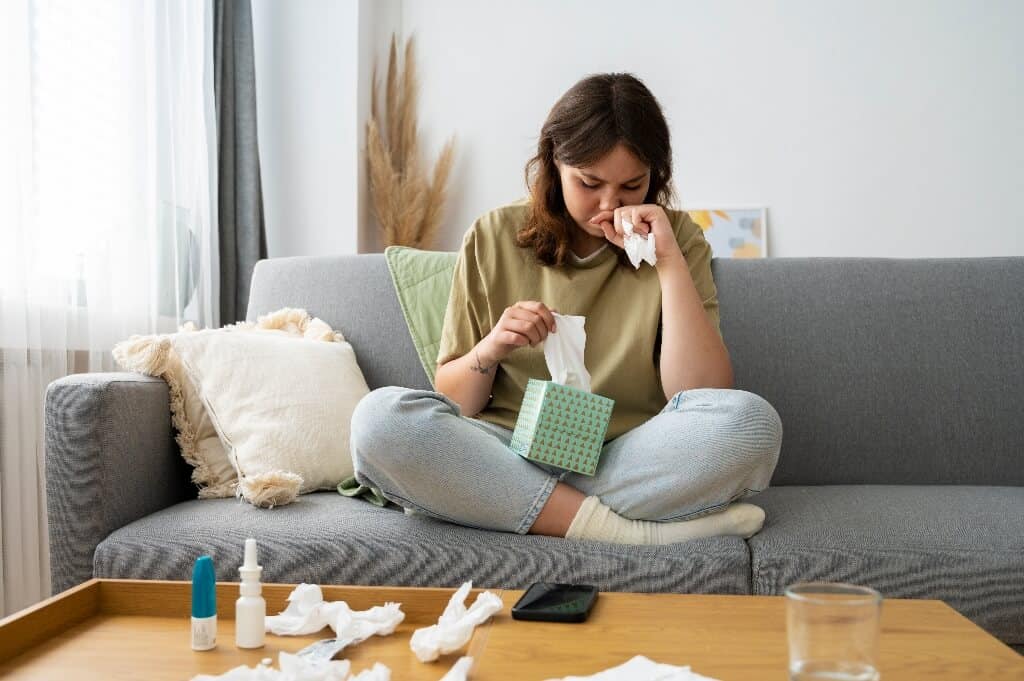When most people think of allergy season, they picture springtime pollen clouds or summer grasses. But for many, winter brings its own set of allergic triggers that can make the coldest months feel just as miserable as springtime sneezing. If you find yourself sniffling, congested, or itchy when the air turns frosty, you may be dealing with winter allergies.
Why Allergies Flare in Winter
Unlike spring and summer, when outdoor pollen dominates, winter allergies usually come from indoor allergens. Cold weather keeps us inside more often, which means greater exposure to:
- Dust mites – Microscopic creatures that thrive in bedding, upholstery, and carpeting.
- Mould spores – Found in damp basements, bathrooms, or even near heating vents.
- Pet dander – Tiny skin flakes from cats and dogs that linger in indoor air.
When indoor air is sealed tight to keep the cold out, these allergens build up and trigger symptoms.
Common Symptoms of Winter Allergies
Winter allergies can mimic a cold, making them easy to confuse. Typical signs include:
- Runny or stuffy nose
- Sneezing
- Itchy, watery eyes
- Postnasal drip
- Coughing or wheezing
- Dry, itchy skin or eczema flare-ups
Unlike colds, allergy symptoms persist for weeks or months instead of resolving in 7–10 days.
Tips for Managing Winter Allergies
Fortunately, there are ways to reduce exposure and ease symptoms:
- Keep humidity in check – Use a dehumidifier to maintain indoor humidity between 30–50% to discourage dust mites and mould.
- Wash bedding weekly – Hot water kills dust mites that thrive in blankets and sheets. Aim to wash bedding at 60 degrees centigrade to kill bacteria and mites.
- Vacuum – Regular cleaning helps remove allergens from carpets and furniture.
- Limit pet dander exposure – Bathe and brush pets regularly, and keep them out of bedrooms.
- Shower before bed – Helps remove allergens from skin and hair.
- Talk to a doctor – Over-the-counter antihistamines, decongestants, or prescription treatments may be recommended.
Winter Allergies vs Colds and Flu
- Allergies last longer, don’t cause fever, and usually trigger itching (especially eyes).
- Colds/flu come with fatigue, body aches, and fever, which allergies don’t.
If symptoms are persistent or worsen, consult an allergist to identify specific triggers and treatment options.
Get Expert Help for Winter Allergies
Winter allergies may not get as much attention as spring pollen, but they can be just as disruptive. By reducing indoor triggers and seeking proper treatment, you can breathe easier and enjoy the season without constant sniffles.
However, if you’re struggling with ongoing allergy symptoms this winter, you don’t have to put up with the discomfort. Our team at Midland Health can help you identify your triggers and create a tailored treatment plan to ease your symptoms.
📞 Call 0121 769 0999 or email hello@midlandhealth.co.uk
📆 Book online today and take the first step toward breathing easier this winter

